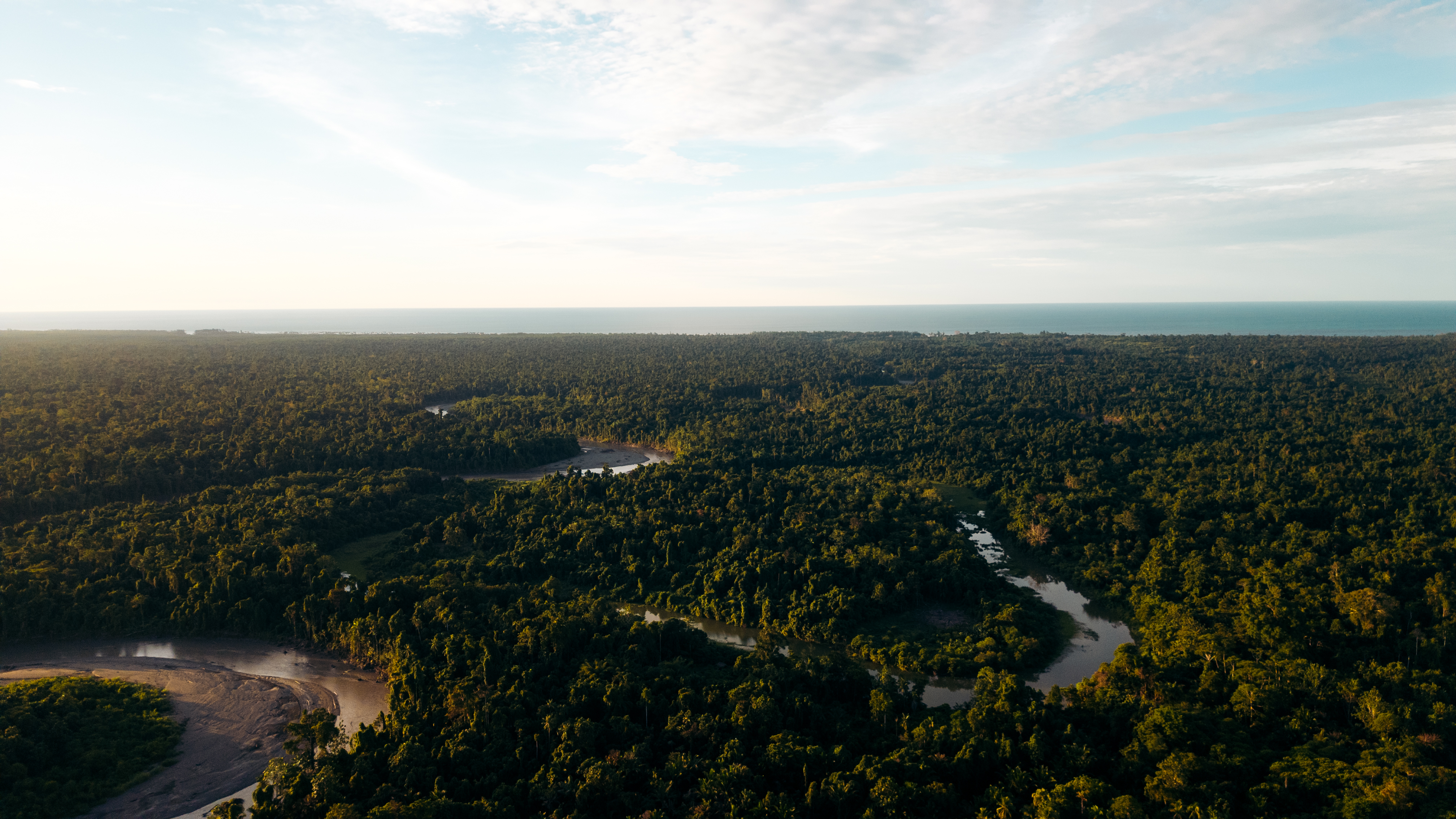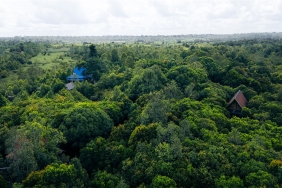MULTI-STAKEHOLDER INITIATIVES TO REALIZE A GREEN ECONOMY IN EAST KALIMANTAN
Balikpapan - The Regional Council on Climate Change (DDPI) of East Kalimantan Province and WWF-Indonesia organized an intensive discussion forum "Paraparty Initiatives in Order to Realize Green Economy in East Kalimantan" today (18/9) at Novotel Hotel, Balikpapan. The activity that discussed the implementation of green economy and REDD+ in East Kalimantan was attended by the Norwegian Ambassador to Indonesia, Stig Traavik, and the Acting Regional Secretary of East Kalimantan Province, Dr. Ir. H. Rusmadi, MS.
This forum is a forum for parties active in green economy and REDD+ pilot activities in East Kalimantan, to share and exchange information on the progress and challenges they face while implementing these activities.
The Governor of East Kalimantan Province, Dr. H. Awang Faroek Ishak, said, "The East Kalimantan Provincial Government supports the holding of this discussion forum, because it will be able to provide important input for stakeholders, both at the local and national levels, regarding the development of green economy pilot activities."
After launching 'Green Kaltim' in 2009, which marked the start of the process of implementing environmentally sound regional development, East Kalimantan published the document 'Low Carbon Economic Development (Low Carbon Growth Strategy)' in 2010, which shows how the province is reducing greenhouse gas emissions while still being able to maintain and even increase economic growth. "In East Kalimantan, green economic development and REDD+ implementation should be considered as a momentum in improving targeted forest and land governance, in order to realize East Kalimantan as a 'Green Province'," said Prof. Dr. Daddy Ruhiyat, Daily Chairman of DDPI East Kalimantan Province.
As a follow-up to Presidential Regulation No. 61 Year 2011, East Kalimantan has completed the preparation of the 'Regional Action Plan for Greenhouse Gas Emission Reduction (RAD GRK) 2010-2020 Period' in October 2012. The emission reduction targets are divided into 4 main sectors, namely Forestry and Peatland, Agriculture, Energy and Transportation, Industry and Waste (waste). Not only that, in the same year, East Kalimantan together with the REDD+ Task Force successfully completed the preparation of the 'Provincial Strategy and Action Plan for REDD+ Implementation (SRAP REDD+)', in accordance with national policies and awareness of the vulnerability of the environment in East Kalimantan to the potential impacts of climate change.
Ambassador Stig Traavik said, "I feel the enthusiasm of the provincial government and stakeholders in East Kalimantan in finding solutions for the implementation of low emission development patterns based on the resource potential, character of the economic sector and biodiversity in this province."
Many REDD+ pilot activities in East Kalimantan are developing in the context of green economy. These activities are being implemented in several districts as a form of partnership between the government and local communities, with civil society and international development partners.
"The implementation of a green economy requires partnerships between parties so that a balance of economic, social and environmental interests can be created in a low-emission development concept," said
WWF-Indonesia CEO, Dr. Efransjah. "WWF-Indonesia conducts activities within the green economy framework in West Kutai and Mahakam Ulu Regencies with the active role of the community, companies and the local government. WWF-Indonesia encourages the two districts to have a 'Green Economy Development Program' as a comprehensive strategy to contribute to reducing emissions in East Kalimantan Province," continued Efransjah.
East Kalimantan is one of the leading provinces in Indonesia that has committed to developing low carbon development, and has the potential to contribute to national emission reduction targets. The province is currently facing deforestation challenges, mainly caused by illegal logging, forest fires, and conversion of natural forests for oil palm, acacia, rubber and coal mining plantations.
For more information, please contact:
- Wiwin Effendy, WWF-Indonesia East Kalimantan Program Coordinator (weffendy@wwf.or.id, +6 2812 5859265+6 2812 5859265)
- Prof. Dr. Daddy Ruhiyat, Daily Chairman of DDPI East Kalimantan (daddyruhiyat@yahoo.com, +62 812 5326970+62 812 5326970)
Call
Send SMS
Add to Skype
You'll need Skype CreditFree via Skype




